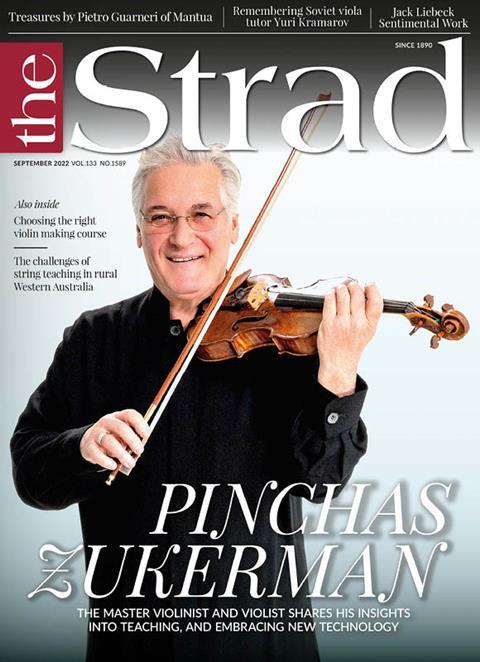Naomi Yandell’s efforts to learn a language using Duolingo have inspired her to rethink the way she teaches her own students, particularly with regard to repetitive practice

Explore more Featured Stories like this in The Strad Playing Hub
Like almost everyone else I know, I am learning a language using Duolingo. I have been at it for two years and am currently on a 37-day streak (yes, life sometimes breaks the continuity). If I am busy in the day, I receive a string of increasingly irate emails from Duolingo reminding me that learning a language needs daily practice for a successful outcome.
My learning comprises two parts online (revision, then learning new material) and one part offline, away from Duolingo, talking to a teacher face to face. As I go, I find myself critiquing my learning process. For a start, my progress disappoints me. I am horrified how much repetition I need to do to remember the simplest phrases reliably – not necessarily on the day I encounter them, but in subsequent days. New phrases are exciting, but tricky to drum in. The moment of reckoning comes when I converse with my teacher – that’s when my ability to recall what I have learnt seems to fall off a cliff, no doubt because I am trying to remember how to say things at the same time as making them cogent in real time.
This self-observation has been enlightening. I find in my online practice that I have a tendency to rush through the more repetitive material – with the result that my brain gets tired, leading to mistakes and frustration. Some days are worse than others, the most maddening being those when I take on a Duolingo ‘challenge’, a test where only three errors per section are acceptable. If I make one error, the pressure to get the remainder right becomes more intense, my thought process goes into overdrive, and this tends to lead to failure.
Read: Study finds musical training increases blood flow to language centres of the brain
Read: Studies reveal musical training in childhood aids language learning ability
Discover more Featured Stories like this in The Strad Playing Hub
All this has inspired me to tweak the way I ask my young students to practise. Obviously, daily emails are out of the question. Instead, they have just my practice notes, and their will to learn the instrument (essential, of course).
Because I have found that repetition makes me rush, I ask my students to introduce ‘think stops’ into the first repetition of each practice to slow their thought process down. I have developed the analogy that if we make absolutely sure that we are going the right way when we visit a friend for the first time, then we are more likely to find our way the second time. It is therefore worth pausing at a junction before deciding which way to go. These ‘think stops’ are of course vital from the first time a phrase is practised.
Additionally, I suggest that it might be wise to space out any repetition within a practice session. And when practising the last repetition of the session, I ask students to play and ‘appraise’ what they are doing, so that they know what they need to focus on next time.
I find I have a tendency to rush through the more repetitive material
My attitude to routine has changed because I have discovered that my brain gets lazy with too much routine. So I decide to mix up my instructions, week by week, to keep my students’ minds awake and active.
Another important point that I have drawn from this Duolingo escapade is that I can’t detect my progress day-to-day. It is only through periodically recording my conversations that I realise that I am making headway.
These conversations are useful much in the same way that a run-through of a piece is helpful; they make me realise that trying to match what I want to say with what I can say in the moment is a step closer to getting to where I’d like to be. Monthly recordings are morale-boosting.
Oops – a reminder email from Duolingo has just pinged in. Before I go, might I encourage you to do something similar and find inspiration from outside your comfort zone? I think that the benefits are enormous for both teacher and student; after all, there’s nothing more satisfying as a teacher than to see your increasingly honed skills enable you and your students to work more effectively.
Read: Opinion: Playing by numbers
Listen: The Strad Podcast Episode #40: Naomi Yandell on teaching beginner bow holds
Discover more Featured Stories like this in The Strad Playing Hub
-
This article was published in the September 2022 Pinchas Zukerman issue.
The veteran violinist and violist tells Pauline Harding his views on everything from his new masterclass series to the role of technology in string teaching . Explore all the articles in this issue
More from this issue…
- Pinchas Zukerman
- International Lutherie Schools
- Newark School of Violin Making
- Strings in regional Western Australia
- Villiers Quartet Session Report
- Pietro Guarneri of Mantua
Read more playing content here
-












































No comments yet